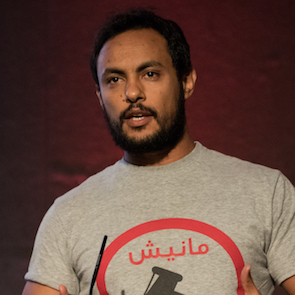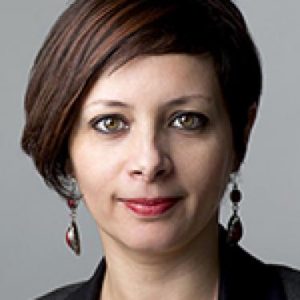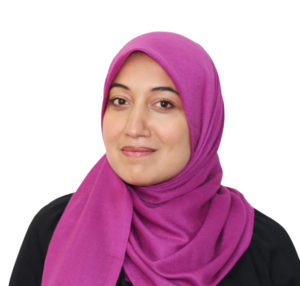Thank you for joining the Carnegie Endowment for International Peace and the Project on Middle East Democracy (POMED) for a webinar on:
Ten Years Later:
Tunisia’s Revolution and Democratic Transition
Thursday, January 14, 2021
10:00 am – 11:45 am ET
Via Zoom
Read the event highlights here.
Read the full event transcript here.
Or, stream the event on Facebook or Twitter.
On January 14, 2011, in the face of peaceful mass demonstrations, Tunisian dictator Zine El Abidine Ben Ali fled the country and his dictatorship crumbled. Tunisia then embarked on a transition to democracy, a complex process that is still unfolding. Tunisia stands today as the only democracy in the Arab world. But the ongoing transition continues to face numerous challenges, and the revolution’s demands for dignity and socioeconomic justice remain unfulfilled.
Please join us for a special tenth anniversary event looking back at the revolution, reflecting on the last decade, and discussing where Tunisia is today.
10:00 am Panel Discussion
Panelists:
Achref Aouadi
Activist and Founder, I-Watch
Amna Guellali
Deputy Regional Director for the Middle East and North Africa, Amnesty International
Saida Ounissi
Member of Tunisian Parliament (France Nord)
Moderator:
Sarah Yerkes
Senior Fellow, Carnegie Endowment for International Peace
11:00 am Fireside Chat
Gordon Gray
U.S. Ambassador to Tunisia, 2009-2012
in conversation with
Amy Hawthorne
Deputy Director for Research, POMED
REGISTER HERE
Speaker Bios
Panel Discussion
 Achref Aouadi is a Tunisian activist and the founder of IWatch, a watchdog anti-corruption organization founded after the 2011 revolution. IWatch works to organize and advocate for increased government transparency and fights against corruption. Mr. Aouadi was chosen to represent the Tunisian civil society at the United Nations Convention Against Corruption and also serves as an Ashoka fellow. In 2019, he was awarded POMED’s Leaders for Democracy Award.
Achref Aouadi is a Tunisian activist and the founder of IWatch, a watchdog anti-corruption organization founded after the 2011 revolution. IWatch works to organize and advocate for increased government transparency and fights against corruption. Mr. Aouadi was chosen to represent the Tunisian civil society at the United Nations Convention Against Corruption and also serves as an Ashoka fellow. In 2019, he was awarded POMED’s Leaders for Democracy Award.
 Amna Guellali is Amnesty International’s Deputy Regional Director for the Middle East and North Africa. Previously, she was a Senior Tunisia and Algeria researcher at Human Rights Watch, where she investigated human rights abuses in both countries. Before joining Human Rights Watch, Guellali worked as an analyst at the office of the Prosecutor of the International Criminal Court in the Hague and as Senior Researcher at the department of international law at the Asser Institute. She has also served as legal officer at the regional delegation of the International Committee of the Red Cross in Tunis. Guellali holds a PhD from the European University Institute in Florence. In 2017, she was awarded POMED’s Leaders for Democracy Award.
Amna Guellali is Amnesty International’s Deputy Regional Director for the Middle East and North Africa. Previously, she was a Senior Tunisia and Algeria researcher at Human Rights Watch, where she investigated human rights abuses in both countries. Before joining Human Rights Watch, Guellali worked as an analyst at the office of the Prosecutor of the International Criminal Court in the Hague and as Senior Researcher at the department of international law at the Asser Institute. She has also served as legal officer at the regional delegation of the International Committee of the Red Cross in Tunis. Guellali holds a PhD from the European University Institute in Florence. In 2017, she was awarded POMED’s Leaders for Democracy Award.
 Saida Ounissi is a member of the Assembly of the Representatives of the People in the Ennahdha party and former Minister of Vocational Training and Employment. She represents the constituency of France Nord, an overseas constituency for members of the Tunisian diaspora in France. She was the youngest Ennahda candidate and became one of the youngest members of parliament. She sat on the Committees of Finance, Planning and Development and of Martyrs and Wounded of the Revolution. Previously, Ounissi worked as an intern at the African Development Bank. She was a researcher at the Research Institute on Contemporary Maghreb from 2012 to 2014. She was also active in a public policy analysis centre called the Jasmine Foundation. She served as Vice President of the European NGO Young Muslims of Europe.
Saida Ounissi is a member of the Assembly of the Representatives of the People in the Ennahdha party and former Minister of Vocational Training and Employment. She represents the constituency of France Nord, an overseas constituency for members of the Tunisian diaspora in France. She was the youngest Ennahda candidate and became one of the youngest members of parliament. She sat on the Committees of Finance, Planning and Development and of Martyrs and Wounded of the Revolution. Previously, Ounissi worked as an intern at the African Development Bank. She was a researcher at the Research Institute on Contemporary Maghreb from 2012 to 2014. She was also active in a public policy analysis centre called the Jasmine Foundation. She served as Vice President of the European NGO Young Muslims of Europe.
 Sarah Yerkes (moderator) is a senior fellow in Carnegie’s Middle East Program, where her research focuses on Tunisia’s political, economic, and security developments as well as state-society relations in the Middle East and North Africa. She has been a visiting fellow at the Brookings Institution and a Council on Foreign Relations international affairs fellow and has taught in the Security Studies Program at Georgetown University and at the Elliott School of International Affairs at the George Washington University. Yerkes is a former member of the State Department’s policy planning staff, where she focused on North Africa. Previously, she was a foreign affairs officer in the State’s Department’s Office of Israel and Palestinian affairs. Yerkes also served as a geopolitical research analyst for the U.S. military’s Joint Staff Strategic Plans and Policy Directorate (J5) at the Pentagon.
Sarah Yerkes (moderator) is a senior fellow in Carnegie’s Middle East Program, where her research focuses on Tunisia’s political, economic, and security developments as well as state-society relations in the Middle East and North Africa. She has been a visiting fellow at the Brookings Institution and a Council on Foreign Relations international affairs fellow and has taught in the Security Studies Program at Georgetown University and at the Elliott School of International Affairs at the George Washington University. Yerkes is a former member of the State Department’s policy planning staff, where she focused on North Africa. Previously, she was a foreign affairs officer in the State’s Department’s Office of Israel and Palestinian affairs. Yerkes also served as a geopolitical research analyst for the U.S. military’s Joint Staff Strategic Plans and Policy Directorate (J5) at the Pentagon.
Fireside Chat
 Ambassador Gordon Gray is the Chief Operating Officer at the Center for American Progress. Prior to his retirement from the U.S. government after 35 years of public service, he was the Deputy Commandant at the National War College. Ambassador Gray was the U.S. Ambassador to Tunisia from 2009 until 2012, witnessing the start of the Arab Spring and directing the U.S. response in support of Tunisia’s transition. He served in Iraq as Senior Advisor to the Ambassador from 2008 to 2009 and as Deputy Assistant Secretary of State for Near Eastern Affairs from 2005 to 2008. Ambassador Gray’s other foreign assignments include Egypt, Canada, Jordan, Pakistan, and Morocco, where he began his career in government as a Peace Corps volunteer. He holds a B.A. from Yale and an M.A. from Columbia, as well as an honorary M.S. from the National Defense University.
Ambassador Gordon Gray is the Chief Operating Officer at the Center for American Progress. Prior to his retirement from the U.S. government after 35 years of public service, he was the Deputy Commandant at the National War College. Ambassador Gray was the U.S. Ambassador to Tunisia from 2009 until 2012, witnessing the start of the Arab Spring and directing the U.S. response in support of Tunisia’s transition. He served in Iraq as Senior Advisor to the Ambassador from 2008 to 2009 and as Deputy Assistant Secretary of State for Near Eastern Affairs from 2005 to 2008. Ambassador Gray’s other foreign assignments include Egypt, Canada, Jordan, Pakistan, and Morocco, where he began his career in government as a Peace Corps volunteer. He holds a B.A. from Yale and an M.A. from Columbia, as well as an honorary M.S. from the National Defense University.
 Amy Hawthorne (moderator) is POMED’s Deputy Director for Research and an expert on Middle East politics and U.S. policy. Before joining POMED in October 2015, Ms. Hawthorne was a senior fellow at the Atlantic Council’s Rafik Hariri Center for the Middle East. In 2011-12, she served as Egypt Coordinator and as Senior Advisor in the Near Eastern Affairs Bureau at the Department of State. Her previous positions include executive director of the Hollings Center for International Dialogue, fellow at the Carnegie Endowment for International Peace, and senior program officer for the Middle East at the International Foundation for Electoral Systems. She earned a BA in History from Yale University in History and an MA in Middle Eastern Studies at the University of Michigan. She has lived and traveled extensively in the Arab world, including as a Fulbright Scholar in Egypt, as well as in Turkey.
Amy Hawthorne (moderator) is POMED’s Deputy Director for Research and an expert on Middle East politics and U.S. policy. Before joining POMED in October 2015, Ms. Hawthorne was a senior fellow at the Atlantic Council’s Rafik Hariri Center for the Middle East. In 2011-12, she served as Egypt Coordinator and as Senior Advisor in the Near Eastern Affairs Bureau at the Department of State. Her previous positions include executive director of the Hollings Center for International Dialogue, fellow at the Carnegie Endowment for International Peace, and senior program officer for the Middle East at the International Foundation for Electoral Systems. She earned a BA in History from Yale University in History and an MA in Middle Eastern Studies at the University of Michigan. She has lived and traveled extensively in the Arab world, including as a Fulbright Scholar in Egypt, as well as in Turkey.
Photo Credit: Crethi Plethi on Flickr
